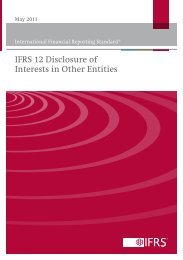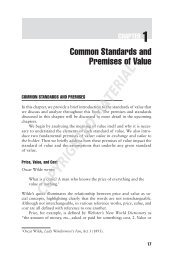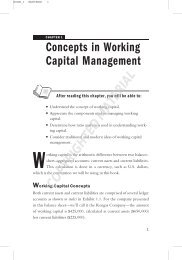ISSUE 5 2008 - Sweet & Maxwell
ISSUE 5 2008 - Sweet & Maxwell
ISSUE 5 2008 - Sweet & Maxwell
You also want an ePaper? Increase the reach of your titles
YUMPU automatically turns print PDFs into web optimized ePapers that Google loves.
Crim. L.R. Cases 411<br />
bodily harm. An alternative proposal is to introduce provisions which establish a<br />
rebuttable presumption that a person who has fallen asleep at the wheel did, in fact,<br />
have a prior awareness that they were at risk of falling asleep. The presumption<br />
could be rebutted by drivers who could establish on the balance of probability<br />
that they had no prior warning of sleepiness. The Institute acknowledges that<br />
while research suggests that healthy drivers do have prior warning that they are<br />
sleepy, some drivers are not good at predicting how close to falling asleep they<br />
are. Moreover, what research exists is based on a small number of healthy drivers<br />
and has been conducted in artificial conditions. Nonetheless, such a presumption<br />
would overcome the evidentiary difficulties that prosecutors currently encounter in<br />
establishing that a driver knew he was at risk of falling asleep. In a final option,<br />
the Institute suggests that road traffic legislation could be amended specifically to<br />
exclude falling asleep at the wheel from being relied upon by an accused in relation<br />
to driving offences.<br />
The paper is available on the Institute’s website: http://www.law.utas.edu.au/<br />
reform/jiminez issues paper A4-PDFfinal 4 Sept 07.pdf [Accessed February 19,<br />
<strong>2008</strong>].<br />
© SWEET &MAXWELL






